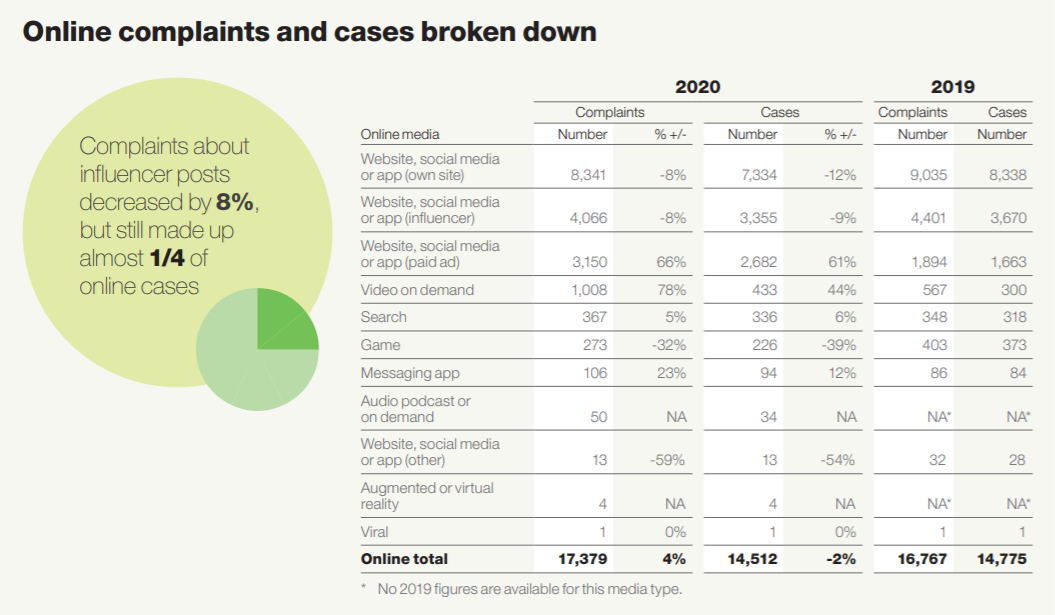Will a trade body tame the ‘Wild West’ of influencer marketing?

Influencer marketing is rapidly expanding, but will a dedicated trade body mean it will finally be taken more seriously as a maturing industry?
That is part of Scott Guthrie’s mission as founder of the new Influencer Marketing Trade Body (IMTB) whose aim is to speak with a unified voice for influencer marketers, promote collaboration with other adjacent bodies in marketing and increase the professionalism in the industry.
Guthrie told Mediatel News: “It’s time to have have a unified voice which can speak on behalf of the industry and not just shut down any dissenting voices because we’re growing at speed and with growth spurts come growing pains, and we’re not immune to that.
“But it’s about having a mutual exchange with these other stakeholders, and sharing our point of view and correcting when sometimes people get it wrong.”
Influencer marketing platforms and agencies globally have grown from 190 in 2015 to 1360 in 2021, and influencers and their partnerships have increasingly come under the microscope in that time.
When ISBA released its Influencer Marketing Code of Conduct in September, Mediatel News asked influencer marketing professionals whether it would be enough to rein in misleading influencers.
This negative perception is one of the major reasons for founding the IMTB said Guthrie, and he thinks a new code of conduct and sharing of best practice will help demonstrate the order of good and bad actors and make influencer marketing more attractive.
Another challenge in the industry was conflating celebrity endorsements or TV reality stars with a large Instagram following with subject matter experts or social media influencers who have spent time honing their craft and developing their community, Guthrie highlighted.
On this point, Oliver Lewis, group MD and founder of The Fifth and an IMTB Board Member said: “The IMTB must first redefine the term influencer in consumer and media minds to better represent the many faces and cultures online, and the evolving social purpose and impact of Influencer marketing today and expanding creator economy.
“The space is developing at pace, but the same few bad actors continue to dominate the headlines and sow mistrust in the whole space.”
Emma Harman, chief client officer at Whalar and IMTB board member added: “The medium of influencer marketing receives relatively low investment, and is often seen as a bolt-on. The IMTB helps to elevate the medium of influencer as a credible and legitimate channel.”
At the most recent Facebook upfront hosted by IAB UK, Nicola Mendelsohn VP of global business at Facebook, said 63% of 18–34-year-olds trust what an influencer says about the brand more than the brand itself.
‘It’s not to elbow out other people’
IMTB has six founding member organizations: TAKUMI, Ogilvy, Tagger, INCA, THE FIFTH and Whalar, with senior members from each sitting on the IMTB’s Board of Management.
The approach for new members is to look “organisations down rather than individuals up”, Guthrie said, and the IMTB is already in “lots of discussions” with other members to join.
Rahul Titus, head of influence for the UK & EMEA at Ogilvy, also an IMTB Board Member added: “We want to continue to challenge our peers and our team to move the needle on creative influence and close the influencer pay gap and ultimately ensure our industry matures properly into its teenage years.”
Guthrie pointed to being asked by ISBA to contribute to the review process of their Influencer Marketing Code of Conduct as an example of the IMTB’s mission:
“It’s not to elbow out other people,” Guthrie said. “It’s to help demonstrate somedepth of subject matter expertise within influencer marketing to help the likes of ISBA or whoever it is that looks after advertisers and then needs an influencer and trade body that looks after agencies and platforms.”
The IMTB has also drawn up its own formal Code of Conduct and six guiding principles for its members.
It has provided written evidence to the Department of Digital, Culture, Media and Sport’s Influencer Culture inquiry as well as meeting with the Competitions and Markets Authority to look at ways to co-promote its campaign against greenwashing called Green Claims Code.
Guthrie specified that in the written evidence to the influencer inquiry, the IMTB pushed back on the suggestion that complaints against influencers were going up.
In ASA’s Annual Report for 2020, it found complaints about influencer posts decreased by 8%, but still made up almost 1/4 of online cases.

How IMTB will work with other bodies
Other trade bodies and influencer marketing companies have broadly welcomed the IMTB’s formation.
Rob Newman, director of public policy who manages ISBA’s influencer activity, said: “Influencer marketing is a powerful phenomenon with the potential for authentic, exciting marketing campaigns. It can also be opaque for consumers; and there can be difficulties in the brand/agency/talent relationship.
“Helping to professionalise influencer activity and promote best practice can only be a good thing. We look forward to working alongside the IMTB as we work towards that common goal.”
James Chandler, CMO of IAB UK, agreed: “As influencer marketing continues to grow, the emergence of a dedicated trade body is further evidence that this channel is maturing to become an established part of many media plans.”
Meanwhile, Vivien Garnès, co-CEO and co-founder of Upfluence warned: “Influencer marketing has seen rapid growth, yet the industry still feels like the ‘wild west’ when it comes to accountability between advertisers and regulators. As the industry matures, professional trade bodies can help by bringing up issues to policymakers earlier.
“Having industry guidelines, providing examples and best practices will no doubt help micro and macro influencers identify shady partnerships and stay aligned with the law or [US] Federal Trade Commission recommendations.”
Garnès added the role of trade bodies in upholding ethical standards has never been more important in the wake of data privacy concerns and Facebook leaks.
He also highlighted specific issues the IMTB can help face head on can be industry-wide challenges with transparency, lack of representation, and over-commoditisation of influencers.
Katie Hunter, social and influencer lead at Karmarama told Mediatel News she expected the IMTB to come from the point of view of influencer platform and agencies so its code of conduct and approach will lean into the needs of creators.
She added: “Anything that encourages the industry on the whole to take note, be accountable and talk to each other about best practice can only be a positive step, providing that it doesn’t dilute the guardrails everyone is working to.”
Other influencer marketing bodies already exist in the US and France; the Influencer Marketing Association set up in 2018 and the Interactive Advertising Bureau set up last year.




